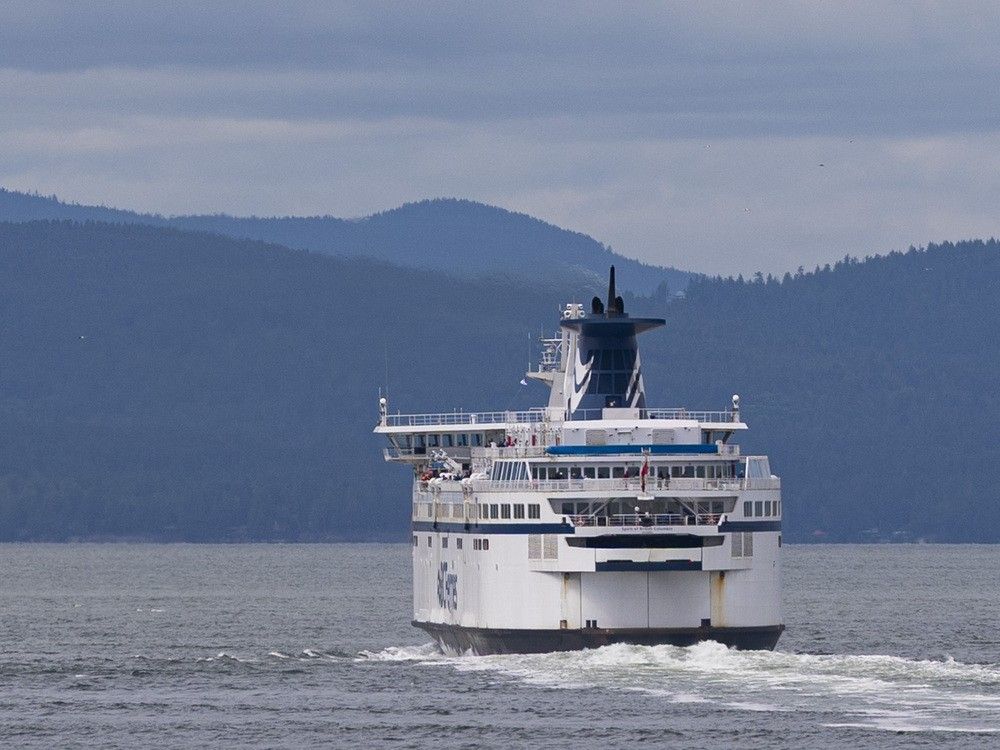
OTTAWA — BC Ferries set off a tidal wave of controversy on Tuesday after announcing a major shipbuilding deal with a Chinese state-owned enterprise, with the ripple effects of the decision reaching Ottawa.
Vancouver Island Conservative MP Jeff Kibble raised the issue in Wednesday’s question period, accusing the Liberal government of rewarding the provincial carrier for selling out Canada’s national interest.
“The Liberals are set to hand over $30 million (in federal subsidies) to BC Ferries while BC Ferries hands over critical jobs, investment and industry to China,” said Kibble.
BC Ferries said
that it had awarded China Merchants Industry Weihai Shipyards (CMI Weihai) a contract to build four new vessels after a “rigorous” global bidding process.
Company CEO Nicolas Jimenez was quoted in the release as saying that CMI Weihai was the “clear choice” for the contract given, among other factors, its “proven ability to deliver safe, reliable vessels on dependable timelines.”
Kibble blasted BC Ferries in the House of Commons for buying the ships from China instead of a “proven Canadian shipbuilder” and pressed the Liberal government to tie federal ferry subsidies to buying Canadian-built ships.
Liberal Transport Minister Chrystia Freeland said that she shared Kibble’s concerns about procurement “at all levels of government” but wouldn’t comment directly on the BC Ferries contract, calling it a provincial matter.
One politician who hasn’t hesitated to criticize the deal is the provincial minister responsible for BC Ferries.
B.C. Transportation Minister Mike Farnworth was quick to distance himself from the decision, saying he was worried about the message it sends in the midst of Chinese economic aggression.
“I do have concerns around procuring services from any country that is actively harming Canada’s economy through unfair tariffs or other protectionist trade practices. I have shared these concerns with BC Ferries,” Farnworth told the media.
Yet, despite his reservations,
the BC Ferries-CMI Weihai deal.
“BC Ferries is an independent company responsible for its own operational decisions,” said Farnworth.
The B.C. government is the sole preferred shareholder in
BC
Ferries and it receives public funding.
Farnworth added that he was “disappointed” that the contract didn’t include more involvement from Canadian shipyards.
BC Ferries’ head of fleet renewal, Ed Hooper, told Postmedia
bid on the contract won by CMI Weihai.
BC
Ferries CEO Nicolas Jimenez
said on Tuesday when the deal was announced that there are currently no tariffs associated with the import of vessels of this type into Canada and tariff disputes didn’t factor into the decision. The value of the contract has not been released.
He said that the shipyard was “the clear choice based on the overall strength of its bid.”
“When it comes to things like trade policy, industrial policy, geopolitics, I think we would really defer that to the federal and provincial governments and expect them to manage and work those issues,” said Jimenez.
Liberal Prime Minister Mark Carney
Canadian shipbuilding during this spring’s federal election campaign.
The federal government previously awarded the Chinese state-owned company a contract to
for East Coast ferry operator Marine Atlantic, according to a 2023 filing from Transport Canada.
The ship began service
between Nova Scotia and Newfoundland
in July 2024.
Federal Procurement Minister Joël Lightbound didn’t respond to an inquiry from the National Post about the BC Ferries-CMI Weihai deal, and didn’t indicate whether the federal government would continue to take bids from the company.
A spokesperson with Public Services and Procurement Canada told the National Post that CMI Weihai does not appear on the agency’s database of active bids.
Christian Leuprecht, a distinguished professor at Royal Military College, said that the BC Ferries-CMI Weihai contract carries clear national security risks.
“The moment you have Chinese equipment onboard, there will be tons of backdoors that either the company can deliberately install or Chinese intelligence can exploit,” said Leuprecht.
He added that B.C. is especially exposed to Chinese high jinks with the ferry being the main transportation artery to capital city Victoria.
“If there is, for instance, a confrontation between the U.S. and China over Taiwan, one of the things that China will do is try to sow social chaos,” said Leuprecht.
“One obvious way to do that in B.C. is to take out it’s most important ferry route.”
National Post, with a file from The Canadian Press
rmohamed@postmedia.com
Get more deep-dive National Post political coverage and analysis in your inbox with the Political Hack newsletter, where Ottawa bureau chief Stuart Thomson and political analyst Tasha Kheiriddin get at what’s really going on behind the scenes on Parliament Hill every Wednesday and Friday, exclusively for subscribers. Sign up here.
Our website is the place for the latest breaking news, exclusive scoops, longreads and provocative commentary. Please bookmark nationalpost.com and sign up for our daily newsletter, Posted, here.
